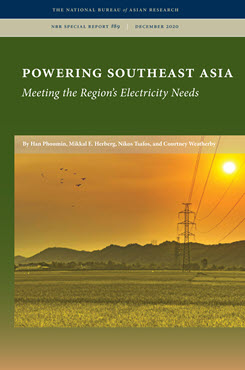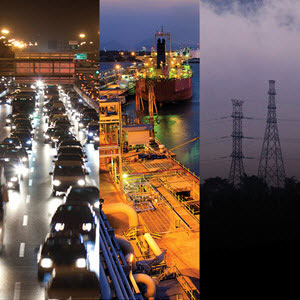NBR Special Report no. 89
The Outlook for Power Generation in Southeast Asia and the Geopolitics of the Indo-Pacific
This essay examines the outlook for power generation in Southeast Asia and argues that how the region meets its electricity needs will have profound consequences for the geopolitical balance of the Indo-Pacific and the global fight against climate change.
EXECUTIVE SUMMARY
MAIN ARGUMENT
Southeast Asia’s electricity market is caught between two geopolitical crosscurrents. On the one side is the fault line between China and the U.S., which forces countries in the region to navigate relations between the two powers. On the other side, Southeast Asia confronts a dilemma familiar to many emerging economies: energy use remains low relative to the global average but is growing fast. To meet that demand, many countries in the region have turned to coal, worsening local air pollution and contributing to climate change. How to provide the energy and electricity needed for economic growth without the negative side effects that come from coal use is one of the region’s greatest challenges.
POLICY IMPLICATIONS
- Southeast Asia is a large and growing electricity market, and its fuel and technology choices will reverberate beyond the region. It is essential, therefore, to help the region meet its electricity needs while reducing CO₂ emissions.
- The U.S. should continue to encourage countries to implement market reforms, invite private capital, award projects fairly, implement high standards, and strengthen local institutions and civil society.
- Southeast Asia needs to develop credible alternatives to coal-fired generation and must be supported in doing so, but such support must go beyond asking the region to reject coal or refuse financing from China. The U.S. needs to develop a more flexible approach to the region that allows China to also play a role.
Nikos Tsafos is a Senior Fellow with the Energy Security and Climate Change Program at the Center for Strategic and International Studies (CSIS).



